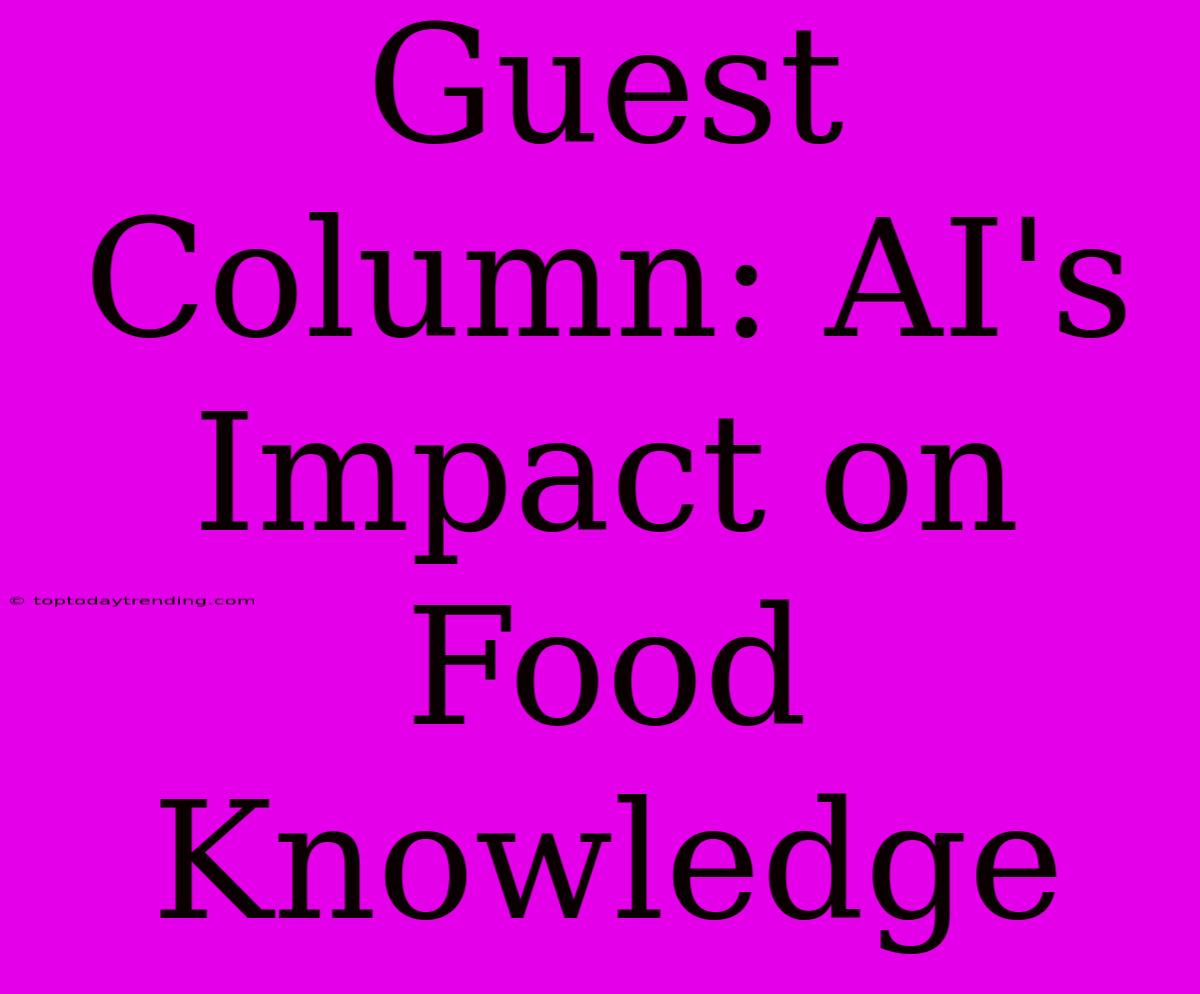Guest Column: AI's Impact on Food Knowledge
The world of food has always been a fascinating blend of science, art, and culture. Today, with the rapid advancement of artificial intelligence (AI), this world is experiencing a dramatic shift. AI is not merely automating tasks in the kitchen; it is transforming the very way we understand, produce, and consume food.
From Farm to Fork: AI's Role in Food Production
AI is revolutionizing agricultural practices. Precision farming, powered by AI, uses sensors and drones to analyze soil health, identify pests, and optimize irrigation, leading to increased yield and reduced resource consumption. This efficiency not only benefits farmers but also contributes to sustainable food production.
Beyond the Kitchen: AI-Powered Food Innovation
Beyond the farm, AI is transforming the food industry. AI-powered robots are streamlining food production, packaging, and delivery processes. AI-driven analytics are helping food companies understand consumer preferences and predict demand, leading to better inventory management and reduced waste.
The Future of Food: AI's Impact on Knowledge and Understanding
AI is also changing how we understand food. Machine learning algorithms are analyzing vast amounts of data about ingredients, recipes, and nutritional values, providing us with unprecedented insights. This knowledge can be used to develop personalized dietary recommendations, identify food allergies, and even create new, healthier food products.
A Deeper Dive: Examples of AI in Action
- Food Recognition Apps: Apps like Google Lens use image recognition to identify ingredients, recipes, and nutritional information.
- Personalized Meal Planning: AI-powered apps like MyFitnessPal use user data to create personalized meal plans based on dietary needs and preferences.
- Food Safety and Quality Control: AI-powered systems can analyze images of food products to detect contaminants and ensure quality.
- Sustainable Food Solutions: AI can help optimize resource use, predict food shortages, and develop innovative solutions to food insecurity.
Looking Ahead: The Challenges and Opportunities
While the potential of AI in the food world is immense, there are challenges to consider.
- Data Privacy and Security: Ensuring the ethical use of data collected by AI-powered food systems is crucial.
- Job Displacement: The automation brought about by AI might lead to job losses in certain areas of the food industry.
- Accessibility and Equity: We need to ensure that the benefits of AI-powered food solutions are accessible to all, regardless of socioeconomic status.
Conclusion:
AI is poised to fundamentally change the food landscape. From optimizing agricultural practices to providing personalized dietary guidance, AI's impact on food knowledge is undeniable. As we embrace this new era, it's crucial to focus on responsible development, ethical data practices, and equitable access to AI-powered solutions. The future of food is being shaped by AI, and it's a future we can all look forward to.

